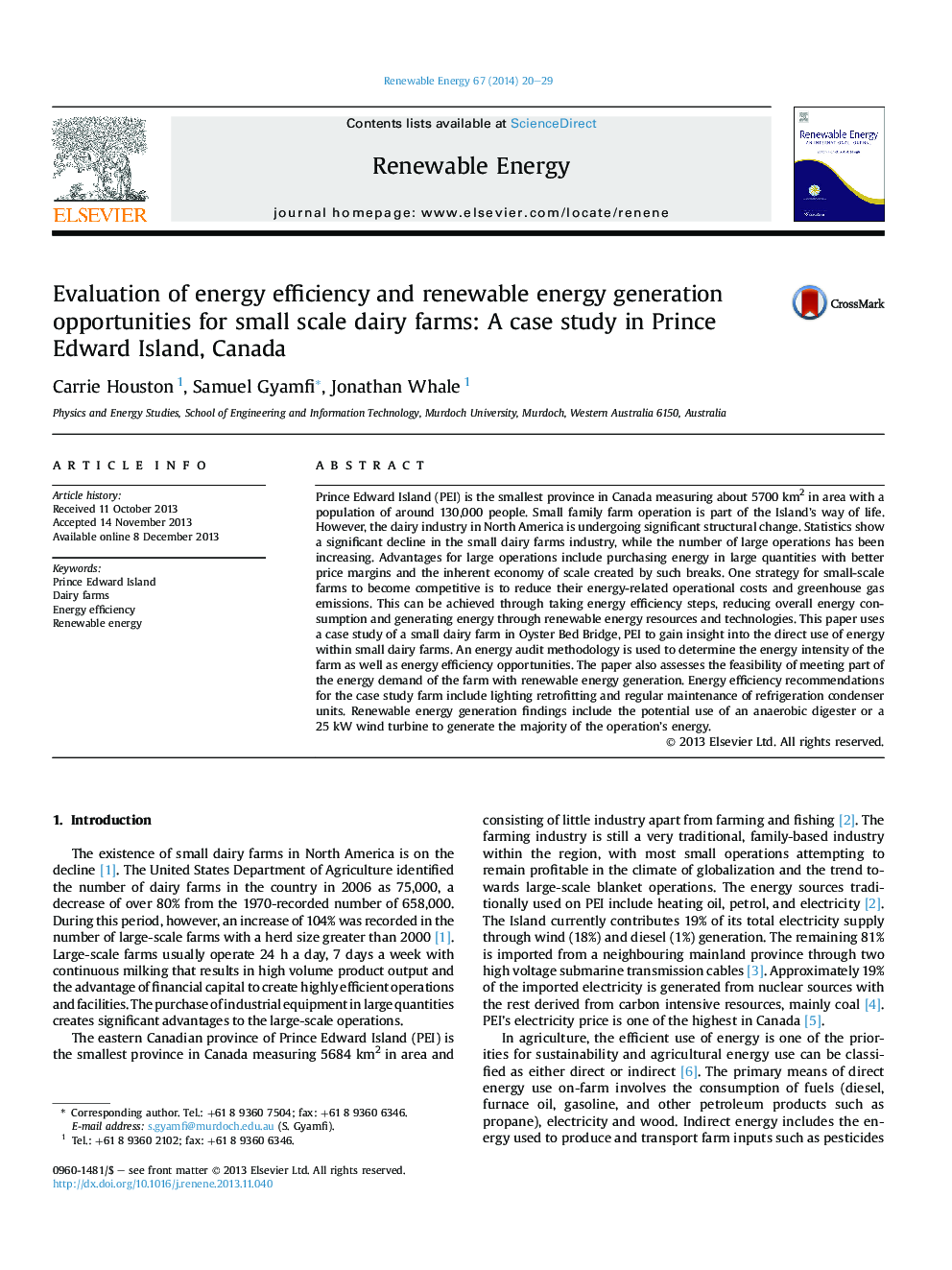| Article ID | Journal | Published Year | Pages | File Type |
|---|---|---|---|---|
| 6768161 | Renewable Energy | 2014 | 10 Pages |
Abstract
Prince Edward Island (PEI) is the smallest province in Canada measuring about 5700Â km2 in area with a population of around 130,000 people. Small family farm operation is part of the Island's way of life. However, the dairy industry in North America is undergoing significant structural change. Statistics show a significant decline in the small dairy farms industry, while the number of large operations has been increasing. Advantages for large operations include purchasing energy in large quantities with better price margins and the inherent economy of scale created by such breaks. One strategy for small-scale farms to become competitive is to reduce their energy-related operational costs and greenhouse gas emissions. This can be achieved through taking energy efficiency steps, reducing overall energy consumption and generating energy through renewable energy resources and technologies. This paper uses a case study of a small dairy farm in Oyster Bed Bridge, PEI to gain insight into the direct use of energy within small dairy farms. An energy audit methodology is used to determine the energy intensity of the farm as well as energy efficiency opportunities. The paper also assesses the feasibility of meeting part of the energy demand of the farm with renewable energy generation. Energy efficiency recommendations for the case study farm include lighting retrofitting and regular maintenance of refrigeration condenser units. Renewable energy generation findings include the potential use of an anaerobic digester or a 25Â kW wind turbine to generate the majority of the operation's energy.
Related Topics
Physical Sciences and Engineering
Energy
Renewable Energy, Sustainability and the Environment
Authors
Carrie Houston, Samuel Gyamfi, Jonathan Whale,
